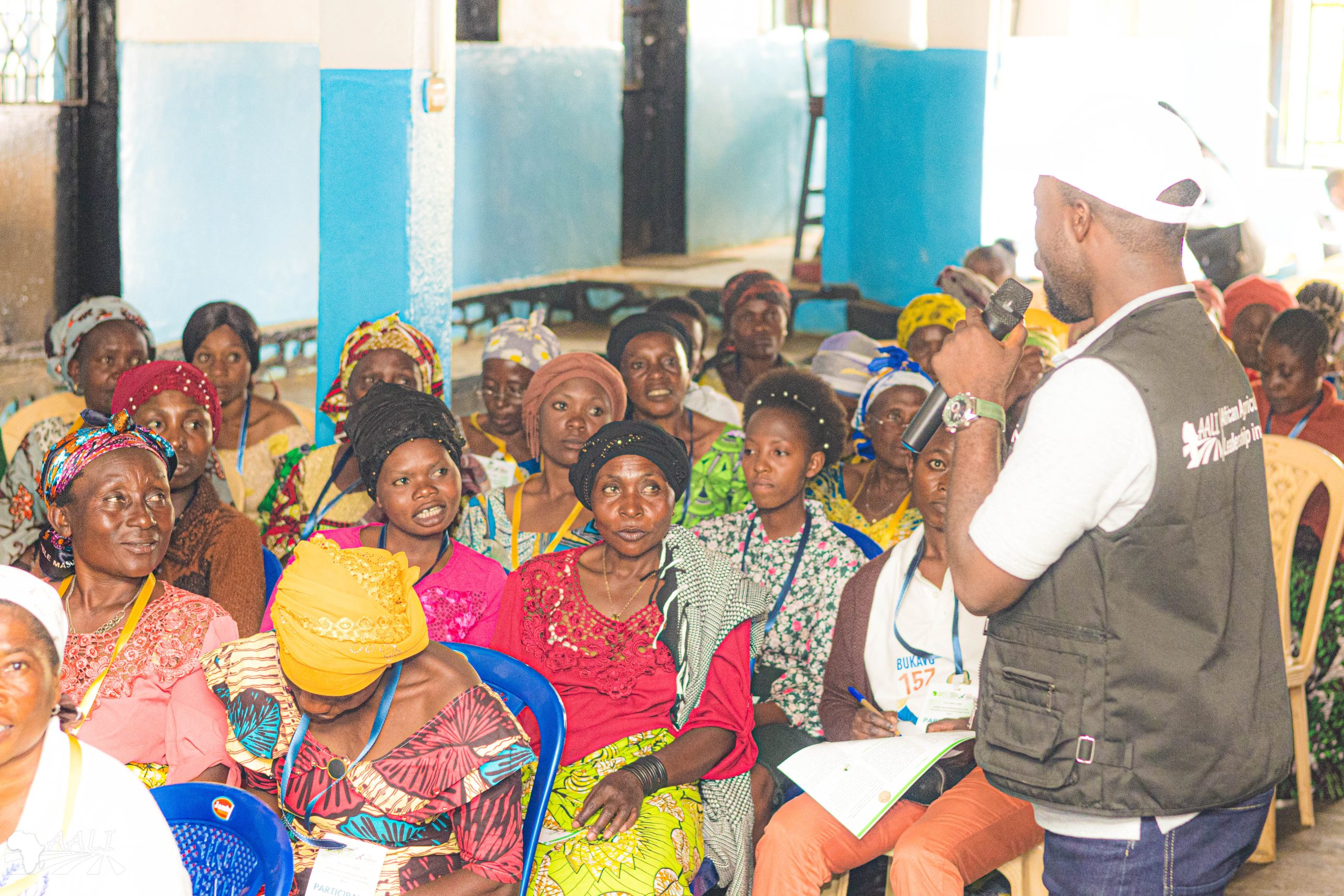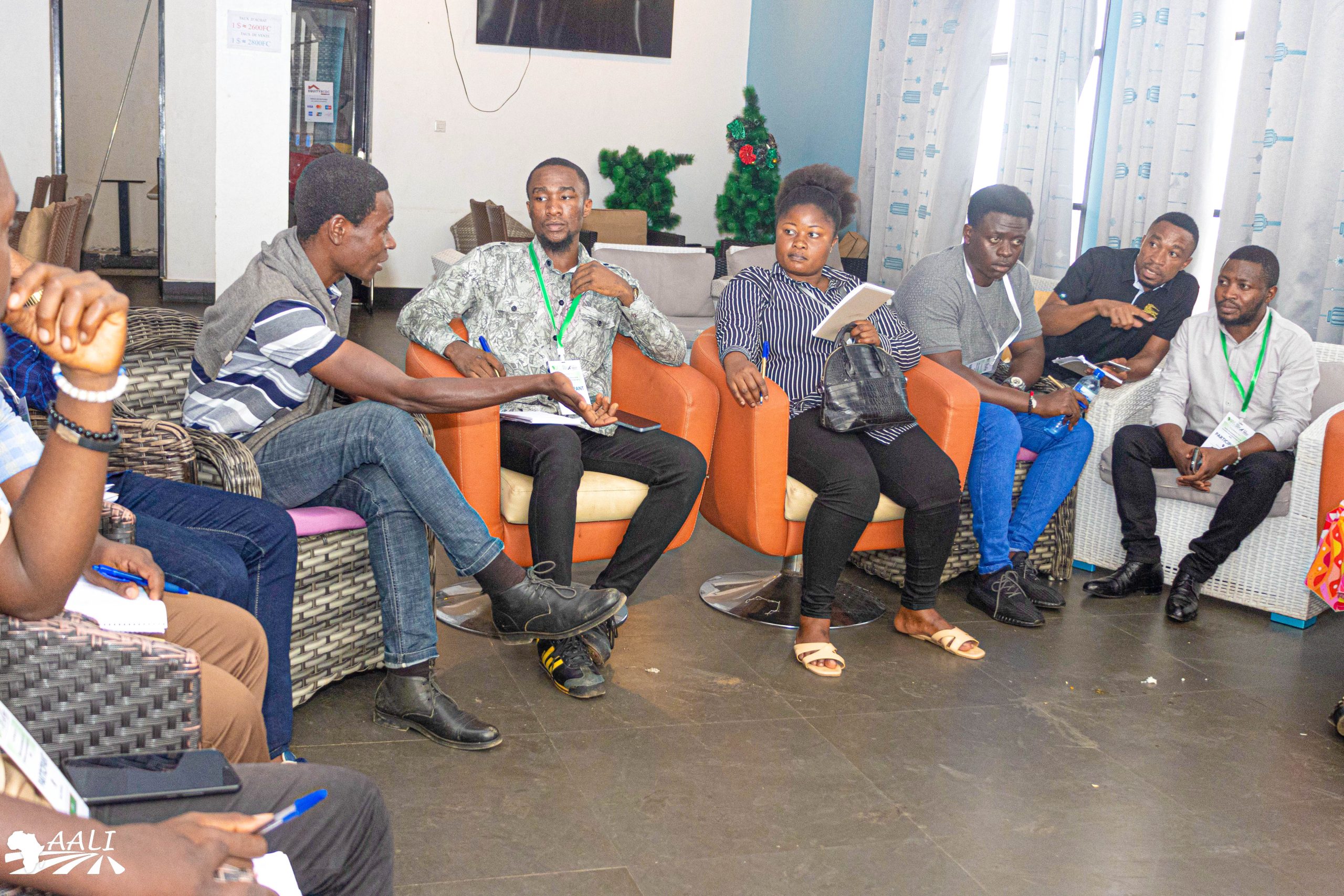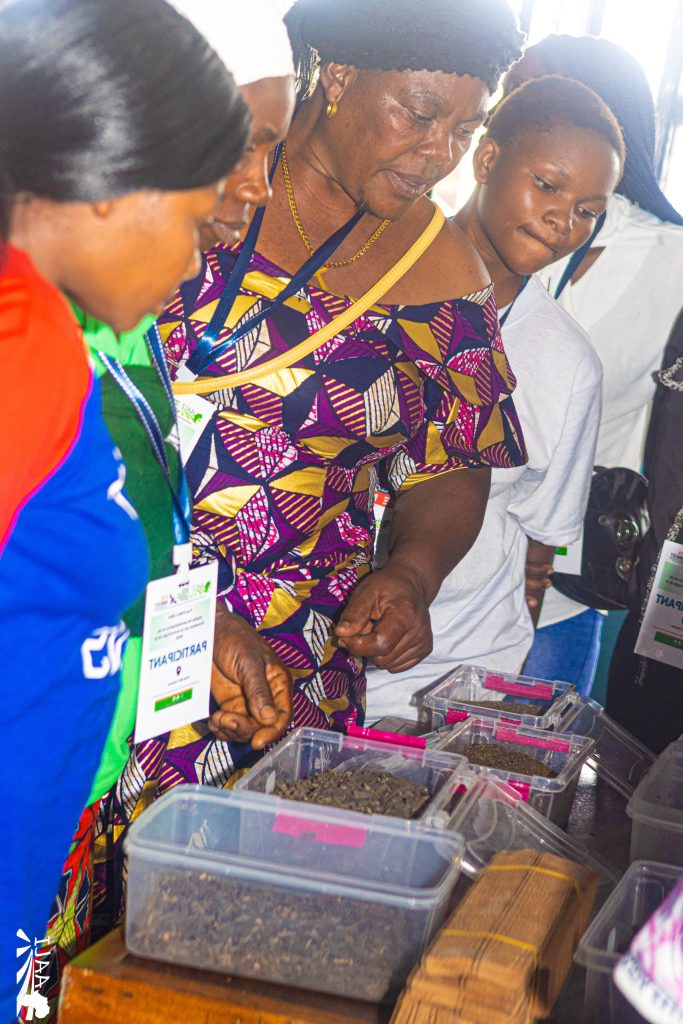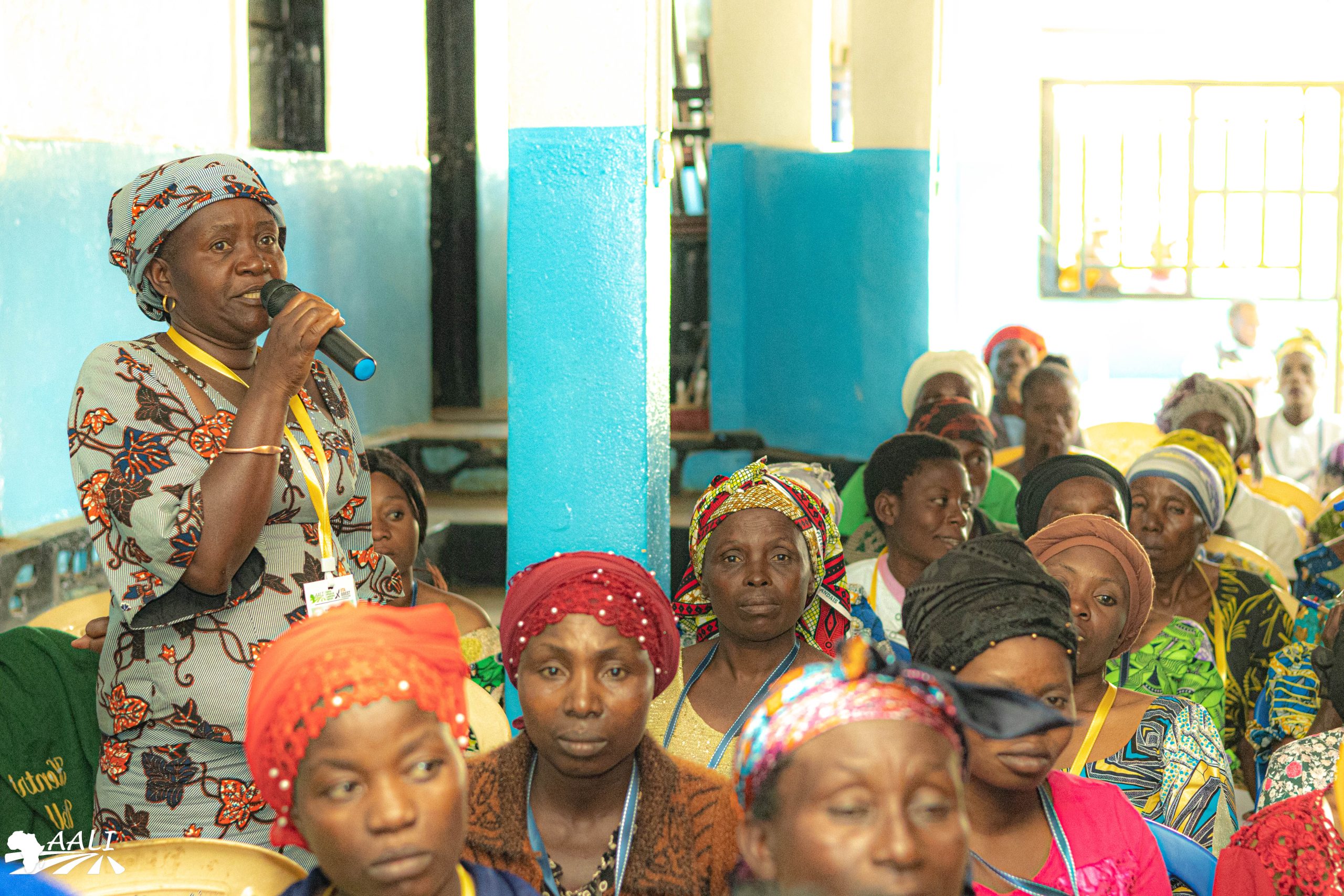With nearly 898 tons of waste generated each day, the city of Bukavu in the Democratic Republic of the Congo (DRC) faces a major solid waste management challenge. An innovative solution is emerging thanks to Black Soldier Fly (BSF) technology. This technology enables the rapid conversion of organic waste into a high-quality agronomic soil component. The BSF is an ecologically important insect that plays a crucial role in the recycling of organic waste and the production of fertilizers.

As part of the ‘Black Soldier Fly for Circular Bioeconomy and Environmental Sustainability (BBEST)’ project, the African Agricultural Leadership Institute (AALI) organized two workshops to raise awareness of this technology in Bukavu and Kavumu on February 27–28 and March 4–5, respectively. The objective of these workshops was to demonstrate the benefits of BSF to (1) women vegetable producers in the production of organic fertilizer at a lower cost and (2) young entrepreneurs involved in the management of biodegradable waste in the city of Bukavu and surrounding areas. The goal was to strengthen their knowledge and entrepreneurial spirit around BSF technology.
Eighty (80) female vegetable producers participated, sharing their experiences in small-scale production and expressing their enthusiasm for adopting this technology, not only for their work in the fields but also in the management of organic waste at home.
Among the 105 youth who participated in this sensitization event, some are members of youth organizations active in organic waste management and the production of black soldier fly larvae in South Kivu, and others are entrepreneurs or graduate students interested in rearing this fly.

The knowledge sharing at the workshop highlighted the opportunities that this technology offers young people, encouraging them to invest in new sustainable agricultural practices while creating jobs and developing commercial activities.
Companies such as “La Briquette du Kivu,” represented by Mr. Murhula, highlighted the importance of this fly in the valuation of organic waste. Indeed, the larvae of the black soldier fly can be used as a source of protein in animal feed, while the residues from their rearing can be transformed into nutrient-rich fertilizers for horticultural crops.
At the same time, the RUNRES Project Officer, Mr. Moustafa Kigangu, explained to the participants that the waste management project in the city of Bukavu has been implemented by IITA since 2019, and the BBEST project strengthens the initiative by using a new approach, that of the black soldier fly.


The sensitization was marked by the sharing of several other experiences of small-scale producers and young entrepreneurs involved in black soldier fly rearing, and provided a fascinating insight into the challenges and solutions that can be envisaged to sustain activities in this sector.
These activities highlight the importance of waste management in the DRC, particularly in Bukavu. This technology, promoted by AALI and other stakeholders, opens the way to a more dynamic economy where waste is no longer seen as a pile of unimportant residues but as an opportunity to create jobs and promote sustainable development at all levels of society. This paradigm shift will also create business opportunities where innovative waste management can become a sustainable source of income and a driver of economic growth for countries.

